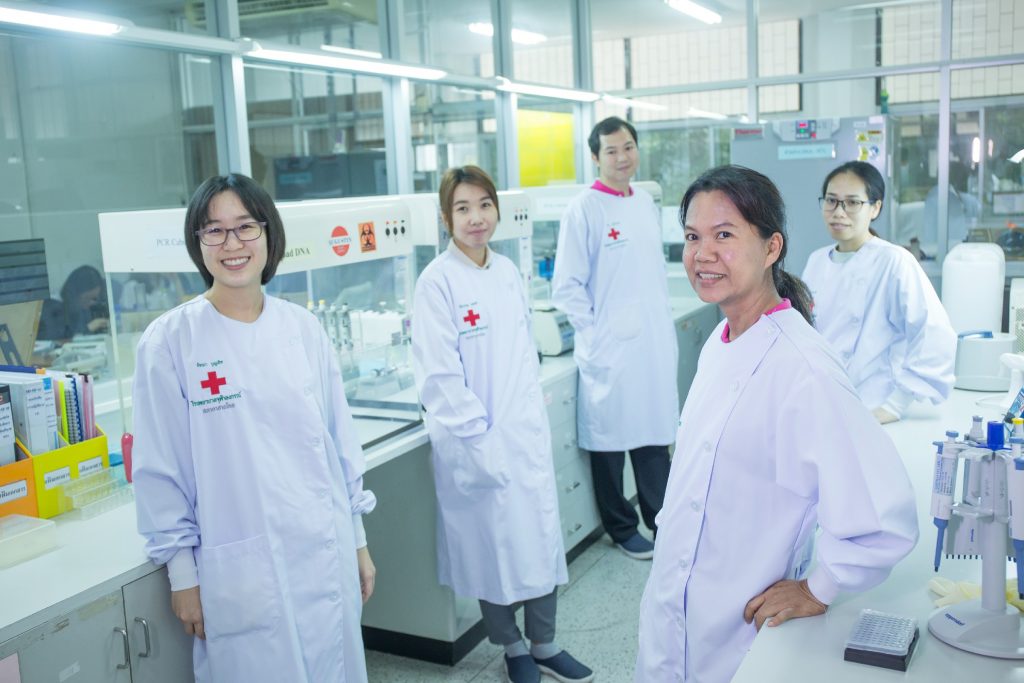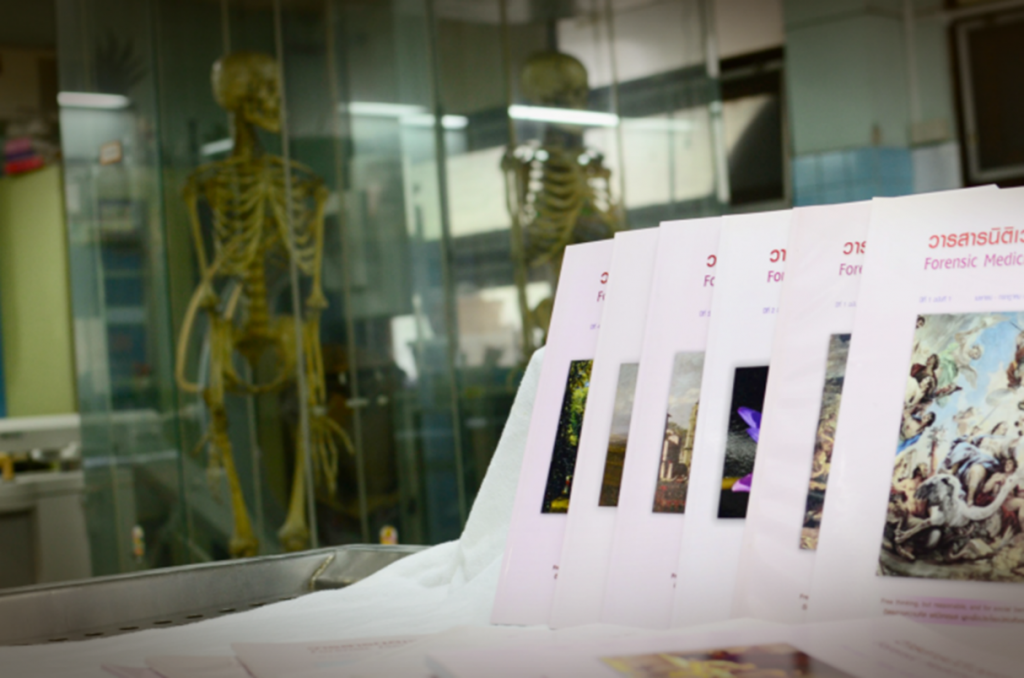Forensic Medicine
King Chulalongkorn Memorial Hospital
Chulalongkorn Forensic Medicine will lead the path of internationalization.
The Department of Forensic Medicine, Faculty of Medicine, Chulalongkorn University, was established by Prof. Pol. Col. Thawan Assanasen, M.D. in 1965 from the forensic medicine unit under the Department of Pathology. Autopsy services for legal cases were operated at the Pathology Building, while the services for patients with legal cases were operated in the hallway of Chakrapong Building.
In 1967, the unit was offered a promotion to the Department of Forensic Medicine. Later, on 16th April 1968, a Chulalongkorn University Regulation was announced to include the Department of Forensic Medicine into the Faculty of Medicine, Chulalongkorn University. The office was located at the Forensic Medicine Building, Chulalongkorn Hospital.
The department’s first forensic medicine textbook was issued by Prof. Pol. Col. Thawan Assanasen, M.D. in 1976.
In 1983, the Forensic Medicine residency training program for the advanced diploma in proficiency in Forensic Medicine, Thai Medical Council, was launched. The first participant joined this program in 1985.
In 1988, a graduate diploma program of Clinical Sciences in Forensic Medicine was launched.
In 1994, the department published a Forensic Medicine textbook. It was prepared by professors in the department with Asst. Prof. Man Ingkatanuwat, M.D. and Asst. Prof. Udomsak Hoonwijit, M.D. as editor.
In 2000, the department was in charge of forensic medicine services in the area of Metropolitan Police Division 5 and expressway.
In 2007, The Forensic Medicine Journal, Volume 1, Issue 1, April – July 2007, was published.
In 2011, The Department of Forensic Medicine, Chulalongkorn University, became a member of Asian Forensic Sciences Network (AFSN).
In 2011, A Master of Science Program of Clinical Sciences in Forensic Medicine was launched.
In 2011, Prof. Dr. Bruce Budowle was granted the honor to be visiting professor and collaborated in forensic genetics research classes.
In 2013, research on Sudden Unexplained Death autopsy was conducted with the University of Tokyo.
In 2018, in collaboration with Dr. Robert Mann, the expert in forensic anthropology, the department organized short-term training programs and postdoctoral research courses.




Vision
Chulalongkorn Forensic Medicine will lead the path of internationalization.
Mission
- To develop all the processes according to international standards.
- To produce personnel in Forensic Medicine and Forensic Sciences with quality and ethics.
- To create research and innovation which benefit the society.
- To be the leader in forensic medicine academics and services.
- To operate with good governance.
Structure or Sections of the Department/Center
The Department of Forensic Medicine is divided into 3 sections and 12 units.
1. Service section, which includes;
- The Chulalongkorn forensic medicine Center.
- A Clinical forensic medicine unit.
- A Forensic serology and DNA unit.
- A Forensic pathology unit.
- A Forensic radiology unit.
- A Forensic toxicology unit.
2. Academic and research section, which includes;
- A Bachelor’s and Master’s education unit.
- A Research unit.
- An Audio-visual unit.
3. Administration section, which includes;
- The Faculty department administration unit.
- The Department administration unit.
- A Quality assurance and improvement unit.

Services
- Crime scene investigation and autopsy services by the Forensic Medicine Center, Department of Forensic Medicine, which provide death scene post-mortem examinations, autopsies, embalming for dead body preservation and physical evidence services.
- Forensic clinic services, which assist in examining patients with legal cases and issuing medical certificates.
- Forensic serology and DNA services, which provide biological evidence investigation on family and relative relationships as well as evidence investigation on sexual assaults.
- Forensic toxicology services, which provide examinations of drug use, poisoning and narcotic substances.
- Other services. Contact respective units of the service for more information.
Operating days/hours and locations
The Clinical forensic medicine unit and forensic serology and DNA unit
They open on working days from 08.00 – 16.00 hrs.
(operating hours for patients with legal cases are from 09.00 – 12.00 hrs).
Location: Bhor Por Ror Building, 5th Floor
The Forensic Medicine center
It opens daily from 08.00 – 16.00 hrs.
Calls and services for death scene post-mortem examinations are available 24/7.
Location: Forensic Medicine Building
The Forensic toxicology unit
They open on working days from 08.00 – 16.00 hrs.
Location: H.M. King Ananda Mahidol Building, 11th Floor
Other units
They open on working days from 08.00 – 16.00 hrs.
Location: Renato and Forensic Medicine Building
Contact
Name
Forensic Medicine,
Renato Building
Tel
02 256 4927



